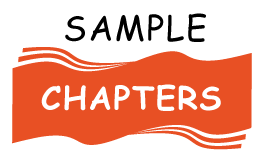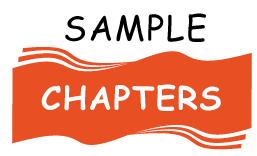How ChatGPT Helps Authors: Revolutionizing the Writing Process

In the digital age, technology continues to evolve, offering new tools and resources to streamline various processes. For authors, one of the most transformative technologies has been ChatGPT, an advanced language model developed by OpenAI. This article explores how ChatGPT assists authors in their writing journey, enhancing creativity, productivity, and overall quality of their work.
1. Idea Generation and Brainstorming
One of the most challenging aspects of writing is coming up with fresh and engaging ideas. ChatGPT excels in this area by providing authors with a vast array of ideas and prompts. Whether you're stuck on a plot twist, need character development suggestions, or want to explore different themes, ChatGPT can generate creative and unique concepts to inspire your writing.
Example: Imagine you're writing a fantasy novel and need a unique setting for your story. By prompting ChatGPT with "Describe an unusual fantasy world," you might receive a detailed description of a floating island inhabited by ethereal beings who control the weather. This can spark new directions for your narrative.
2. Overcoming Writer's Block
Writer's block is a common issue that can halt progress for even the most experienced authors. ChatGPT can help overcome this hurdle by providing continuous writing prompts, helping authors to keep writing and stay engaged with their projects. By interacting with ChatGPT, authors can break free from creative slumps and maintain their momentum.
Example: If you're experiencing writer's block, simply ask ChatGPT, "What happens next in a mystery novel where the detective is the prime suspect?" ChatGPT can generate multiple scenarios that can help you move forward with your story.
3. Enhancing Writing Quality
ChatGPT is an excellent tool for improving the quality of writing. It can assist with grammar, style, and coherence, ensuring that the final product is polished and professional. Authors can input their text and receive suggestions for enhancing clarity, fixing grammatical errors, and improving overall readability.
Example: You might input a paragraph from your manuscript into ChatGPT and ask for feedback on improving it. ChatGPT can highlight areas where the sentence structure can be tightened or suggest more vivid vocabulary to enhance the narrative.
4. Expanding Vocabulary and Style
Authors often strive to diversify their vocabulary and experiment with different writing styles. ChatGPT can introduce new words and stylistic elements that can enrich an author's writing. By analyzing the author's existing text and suggesting alternatives, ChatGPT helps authors expand their linguistic repertoire.
Example: If you want to diversify your descriptive language, you can ask ChatGPT for synonyms or more vivid expressions. For instance, instead of using "dark forest," ChatGPT might suggest "shadowy woodland" or "gloomy thicket."
5. Structuring and Outlining
Creating a clear and coherent structure is crucial for any writing project. ChatGPT can assist authors in developing detailed outlines and organizing their thoughts. By providing a logical sequence of events or chapters, ChatGPT helps authors maintain a clear narrative flow and ensure that their story progresses smoothly.
Example: For a non-fiction book, you can ask ChatGPT to help create an outline by specifying your main topic and subtopics. ChatGPT can generate a structured outline that covers all the essential points, making the writing process more efficient.
6. Editing and Proofreading
Editing and proofreading are essential steps in the writing process. ChatGPT can act as an additional set of eyes, identifying errors and suggesting improvements. Authors can use ChatGPT to review their drafts, ensuring that the final manuscript is free from mistakes and inconsistencies.
Example: After completing a draft, you can input sections of your manuscript into ChatGPT and ask for proofreading. ChatGPT can highlight spelling errors, grammatical issues, and awkward phrasing, helping you refine your work.
7. Research Assistance
Research is a critical component of writing, especially for non-fiction and historical fiction authors. ChatGPT can assist with research by providing quick access to information and summarizing complex topics. This allows authors to focus more on writing and less on time-consuming research tasks.
Example: If you're writing a historical novel set in Victorian England, you can ask ChatGPT for details about daily life during that period. ChatGPT can provide concise and accurate information that you can incorporate into your narrative.
8. Dialogue and Character Development
Creating authentic and engaging dialogue is vital for character development. ChatGPT can help authors craft realistic conversations and develop distinct voices for their characters. By providing sample dialogues and character traits, ChatGPT ensures that characters are well-rounded and believable.
Example: If you're struggling with dialogue, you can describe your characters to ChatGPT and ask for sample conversations. ChatGPT can generate dialogues that reflect your characters' personalities and relationships.
9. Audience Engagement
Understanding and engaging your audience is crucial for an author's success. ChatGPT can analyze reader feedback, reviews, and market trends to help authors tailor their writing to meet audience expectations. This insight allows authors to create content that resonates with their readers.
Example: By inputting reader reviews of your previous work into ChatGPT, you can ask for an analysis of common themes and preferences. ChatGPT can highlight what readers loved or disliked, helping you improve your future projects.
10. Marketing and Promotion
In addition to writing, authors must also focus on marketing and promoting their work. ChatGPT can generate marketing content, such as book descriptions, social media posts, and promotional emails. This support ensures that authors can effectively market their books and reach a wider audience.
Example: You can ask ChatGPT to create a compelling book blurb or a series of social media posts to promote your latest release. ChatGPT can provide engaging and persuasive content that captures potential readers' attention.
Conclusion
ChatGPT is a powerful tool that can revolutionize the writing process for authors. From idea generation to marketing and promotion, ChatGPT offers invaluable support at every stage of writing. By leveraging this advanced language model, authors can enhance their creativity, productivity, and overall writing quality, ultimately achieving greater success in their literary endeavors. Embrace the future of writing with ChatGPT and discover how it can transform your authorial journey.



